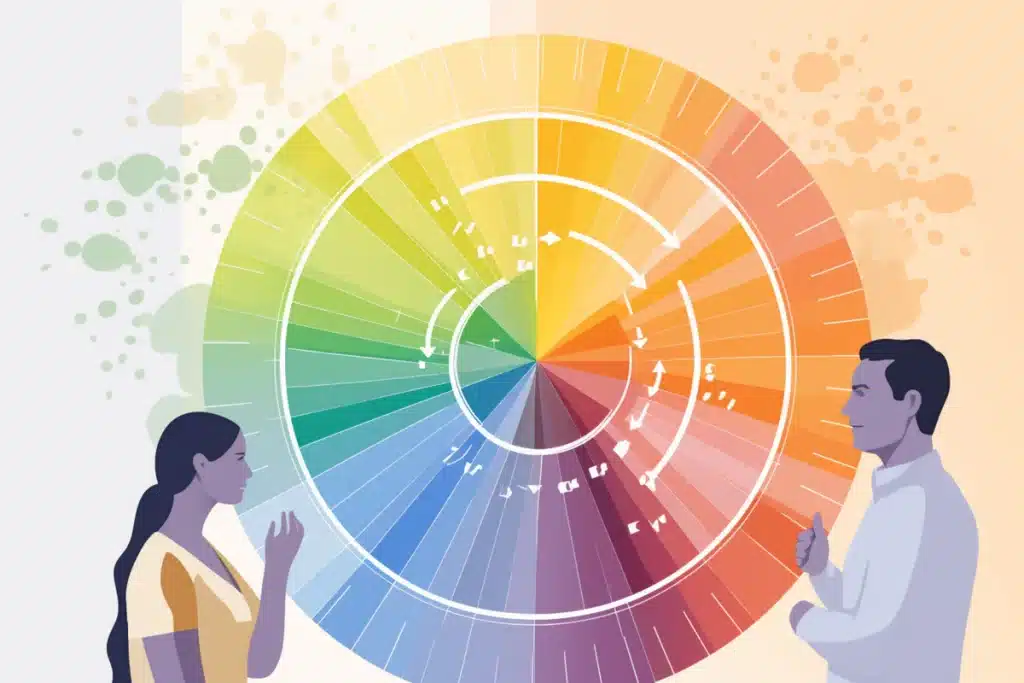The Role of Emotional Clarity in Success
Natalie Brooks August 4, 2025
Emotional clarity—understanding and labeling your emotions accurately—is now central to wellness-driven success and personal growth in 2025. This article explores why this emerging trend is at the heart of modern wellness and how it transforms your path to success.

Why Emotional Clarity Is Emerging as a Wellness Trend
In 2025, wellness has evolved from surface-level self-care to a much deeper, introspective approach focused on internal balance and emotional regulation. One of the leading concepts driving this shift is emotional clarity—an ability to clearly understand and name what you’re feeling, why you’re feeling it, and how to respond appropriately.
As mental fitness takes center stage in wellness, emotional literacy is being recognized as a foundation of personal resilience, goal achievement, and psychological well-being. Emotional clarity is more than a buzzword—it’s becoming a non-negotiable skill in personal and professional life. According to industry reports, individuals who practice emotional clarity consistently are better at managing stress, navigating conflicts, and achieving meaningful goals.
Moreover, with the rise of emotional fatigue driven by digital overwhelm, global instability, and workplace stressors, people are searching for tools that go beyond generic mindfulness practices. Emotional clarity has emerged as the solution, giving people a framework to process and use their emotions as fuel for progress.
What Is Emotional Clarity—and Why It Matters
Emotional clarity refers to the ability to identify, understand, and articulate one’s emotional experiences in specific and nuanced ways. Rather than saying “I feel bad,” someone with emotional clarity might say, “I feel disappointed because I didn’t meet my expectations.” That specificity opens up a pathway for thoughtful, constructive action.
Studies show that emotional clarity is closely tied to emotional intelligence, which has long been associated with leadership performance, strong relationships, and mental health resilience. It allows individuals to:
- Accurately distinguish between similar emotional states (e.g. anxiety vs. anticipation)
- Avoid being overwhelmed or confused by strong feelings
- Communicate emotions more clearly in relationships
- Make better decisions rooted in awareness rather than reaction
This ability is particularly valuable in high-stakes environments such as corporate leadership, parenting, and entrepreneurship, where understanding emotional triggers can prevent miscommunication and burnout.
Emotional Clarity in 2025 Wellness Tech & Practices
AI-Powered Emotional Coaching
One of the most exciting innovations in emotional clarity is the integration of AI tools that help users reflect on and process their emotions in real time. Tools like Reflexion and PsyCounAssist are gaining popularity for their ability to provide feedback, ask introspective questions, and guide emotional journaling. These platforms use natural language processing to detect emotional tone in your responses and offer tailored suggestions.
Such tools are especially helpful for people who struggle with emotional awareness or don’t have access to traditional therapy. Early studies show users who use these platforms regularly report increased self-awareness and reduced anxiety levels.
Wearables That Track Emotional Patterns
Beyond AI, emotional clarity is becoming bio-integrated through wearables that measure heart rate variability, sleep quality, and stress levels. Devices like the Oura Ring or Fitbit Sense now offer mood-tracking prompts based on physiological changes, encouraging the wearer to pause and reflect.
This pairing of biometrics with emotion tracking allows for real-time clarity—catching emotional dips or peaks before they spiral into burnout. It’s changing how people approach their daily lives, work breaks, and even social interactions.
Journaling & Reflective Writing Resurgence
While tech tools help, traditional practices like journaling are making a strong comeback in wellness culture. More people are committing to weekly journaling rituals that help them track emotional patterns and gain insight into their motivations. Some prefer freewriting, while others use structured journal prompts focused on emotional identification.
For example, asking “What emotion am I feeling right now?” and “What triggered it?” encourages clarity and emotional responsibility. Regular journaling improves memory, decision-making, and emotional regulation—all core pillars of clarity.
How Emotional Clarity Supports Personal Success
A. Aligning Goals with Emotional Needs
Emotionally clear individuals tend to set more realistic and fulfilling goals. They’re not driven by vague desires or social comparison but by deep emotional insights. For instance, understanding that a goal stems from a desire for autonomy or connection can help tailor the approach, reduce resistance, and increase follow-through.
Research indicates that when goals align with emotional drivers, motivation increases, and burnout decreases. Emotional clarity serves as the bridge between what you want and why you truly want it.
B. Strengthening Relationships
Clear emotional communication is essential in any healthy relationship. When partners, friends, or colleagues are emotionally transparent, they build trust, reduce conflict, and encourage empathy. Emotional clarity helps people move past defensiveness and instead say, “I’m feeling overwhelmed today—not angry,” shifting the tone of the interaction.
In romantic or workplace settings, this can prevent unnecessary arguments and foster deeper connections based on authenticity.
C. Leading with Confidence and Compassion
Leadership in 2025 isn’t just about delivering results—it’s about managing people, moods, and morale. Leaders with high emotional clarity are more in tune with their teams, can recognize unspoken tensions, and create psychologically safe environments.
By understanding their own emotional responses and those of others, emotionally intelligent leaders can make decisions that balance empathy with accountability. Teams are more likely to remain engaged, creative, and loyal when led by someone who demonstrates emotional insight.
How to Develop Emotional Clarity Daily
Achieving emotional clarity isn’t reserved for therapists or high-level executives. It’s a skill anyone can develop with daily attention and intention.
1. Practice Daily Check-Ins
Ask yourself:
- What am I feeling right now?
- What caused this emotion?
- What does this emotion need from me?
Doing this once in the morning and once before bed helps build emotional awareness.
2. Use a Feelings Wheel
The “Feelings Wheel” is a tool therapists use to help individuals find more accurate words for their emotions. Instead of “sad,” you might discover you’re “discouraged” or “lonely”—insights that lead to more effective self-care.
3. Pause Before You React
Emotional clarity gives you a window between stimulus and response. When triggered, take a moment to breathe and identify what you’re feeling before reacting. This habit alone can transform how you handle stress, conflict, or criticism.
4. Use Reflective Prompts
Try writing on:
- “A moment today that surprised me emotionally was…”
- “I felt most grounded when…”
- “A situation that confused me emotionally…”
These prompts bring clarity by making subconscious feelings visible.
5. Learn from Feedback
When others reflect back how they experience you emotionally, take note. Emotional blind spots often become visible through relationships. Clarity improves when you’re open to seeing how your emotions impact others.
Final Thoughts: Emotional Clarity Is Not Optional—It’s Foundational
The rise of emotional clarity as a wellness trend is a clear reflection of our modern challenges and needs. As we navigate rapid societal change, emotional overwhelm, and increasing demands on our mental bandwidth, clarity has become more than helpful—it’s necessary.
Building emotional clarity won’t just make you feel better. It will help you focus better, communicate better, lead better, and ultimately live with greater alignment and intention. In 2025 and beyond, this clarity is proving to be one of the most powerful drivers of success and fulfillment.
References
- Lee, Sarah (2025) Emotional Clarity: The Key to Unlocking Potential. Available at: https://www.numberanalytics.com (Accessed: 4 August 2025).
- Global Wellness Institute (2025) AI Initiative Trends for 2025. Available at: https://globalwellnessinstitute.org (Accessed: 4 August 2025).
- Newswire (2025) Clarity Confidence Code Review: 2025’s Top Growth Tool. Available at: https://www.newswire.com (Accessed: 4 August 2025).







